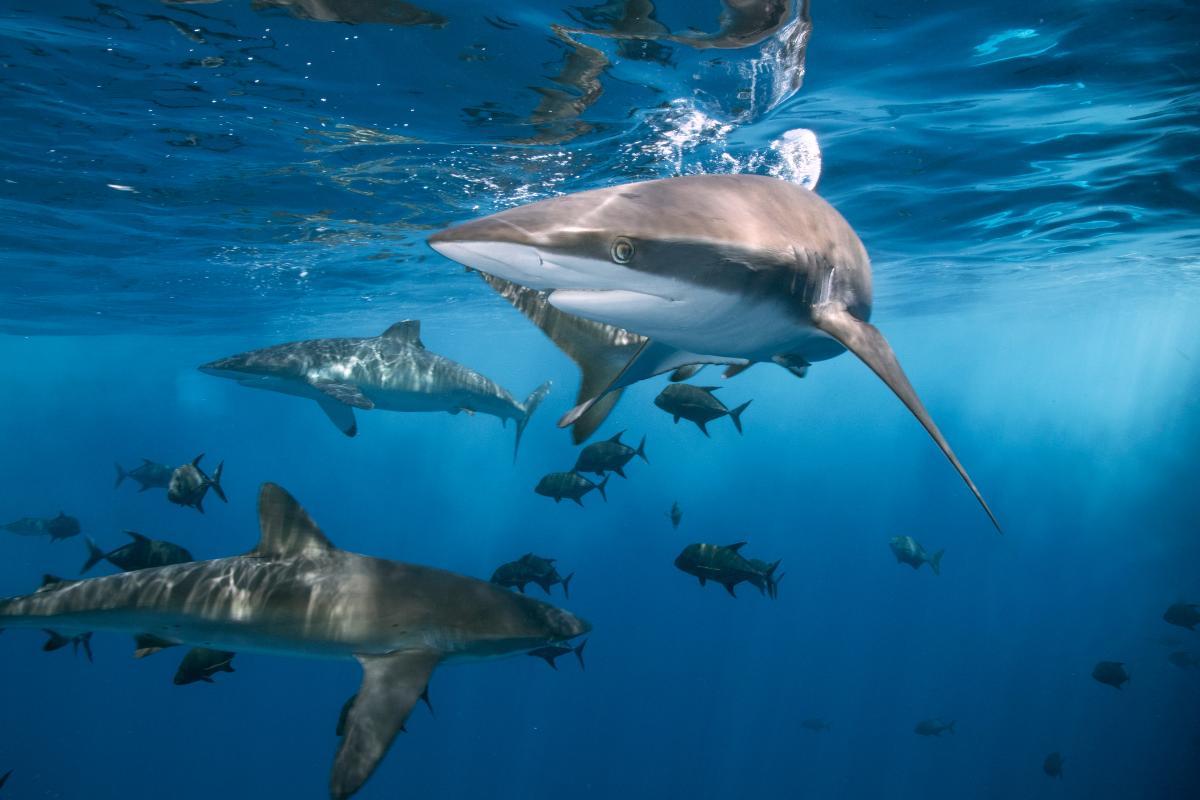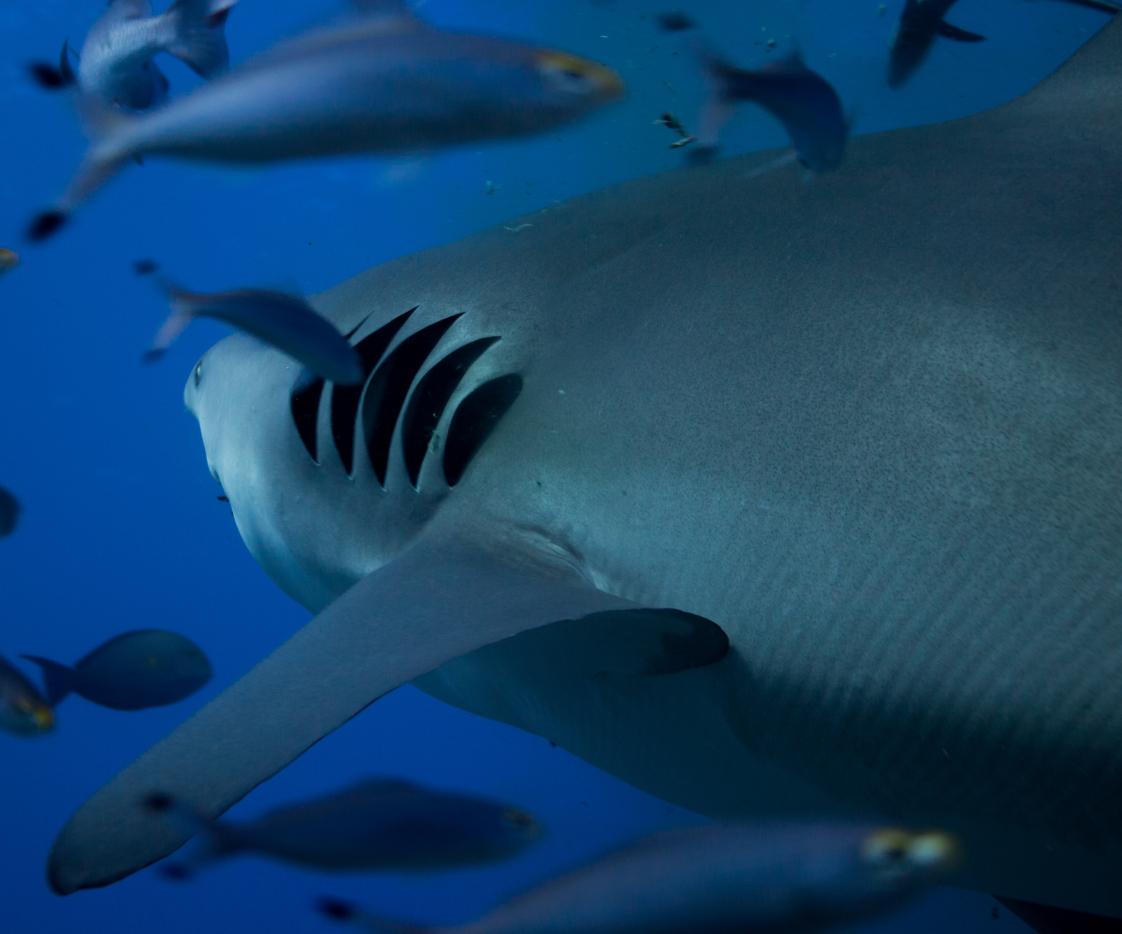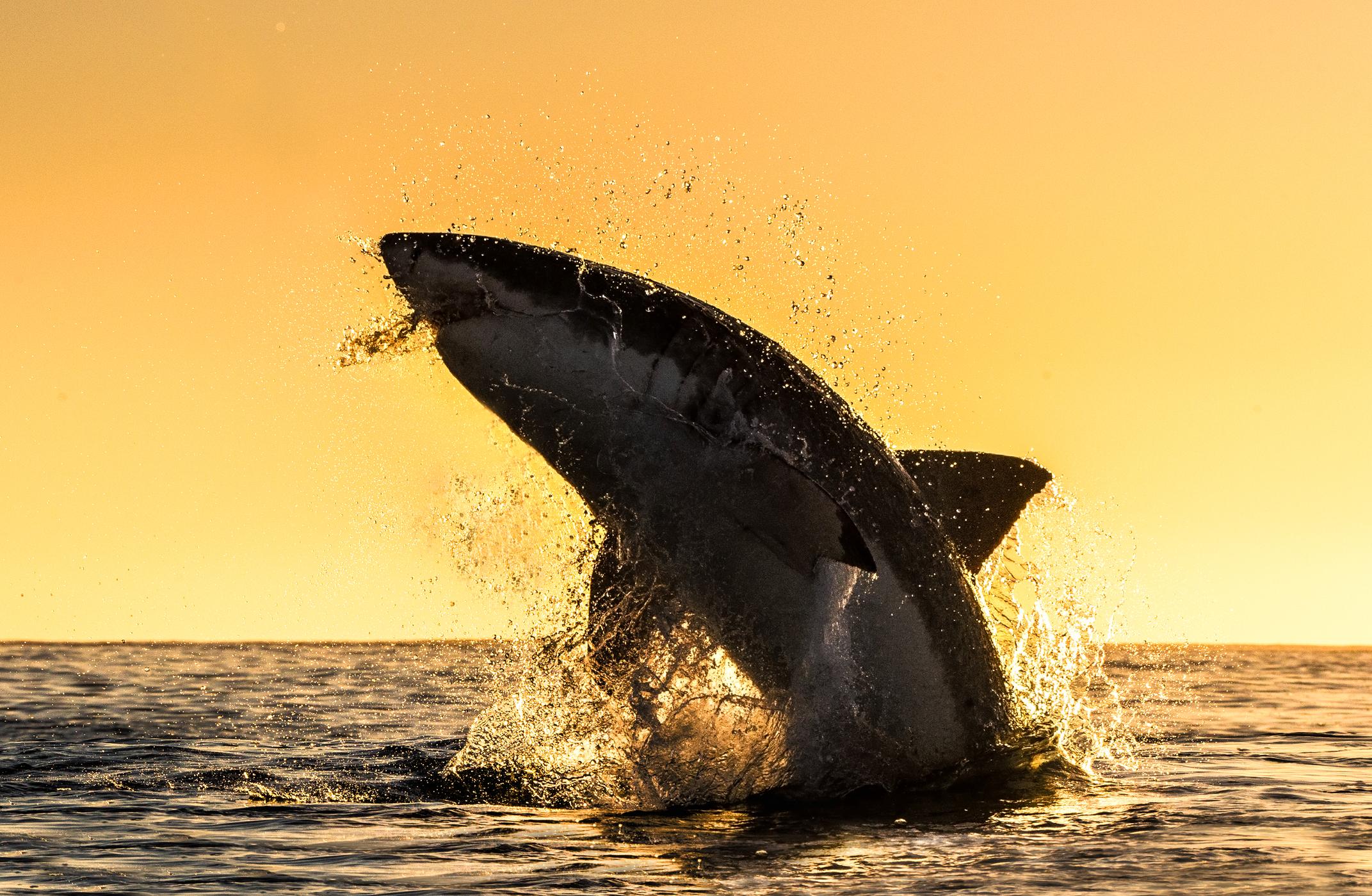How Long Do Sharks Live?

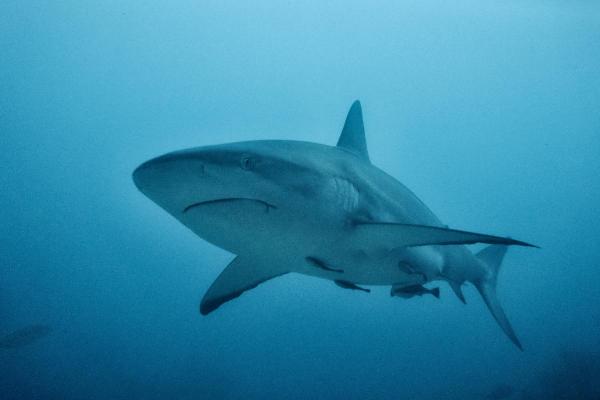
Sharks, with their ancient lineage and diverse species, have lifespans that vary widely, from just a few decades to over a century. Understanding the secrets of shark lifespan offers a unique window into the remarkable adaptability of these apex predators and the intricacies of their life cycles. From their humble beginnings as fertilized eggs to being the apex predators of the seas, these creatures undergo a series of transformative stages.
In the following AnimalWised article, we explore how long do sharks live, the different stages of their life cycle and the factors that influence their lifespan.
What are the 5 stages of a shark's life cycle?
The shark life cycle is a complex process that varies by species, generally encompassing the stages of fertilization, incubation, birth, growth and reproduction.
Fertilization
Unlike many fish who release eggs and sperm externally, sharks have a more sophisticated approach to reproduction. Sharks utilize internal fertilization. The male shark possesses specialized organs called claspers, located on his pelvic fins. These claspers hold sperm and are crucial for transferring it to the female.
The mating process can be quite energetic and sometimes even rough. Males may chase or bite females to subdue them before aligning their bodies side-by-side. The male then inserts one of his claspers into the female's cloaca, an opening that serves for both waste elimination and reproduction. Sperm travels through a groove in the clasper, reaching the female's oviducts where fertilization occurs.
In rare cases, some shark species can even reproduce through parthenogenesis, meaning development of an embryo without fertilization by a male. This has been observed in species like bonnetheads and zebra sharks.
Incubation and gestation
After the delicate process of fertilization, the next critical stage in a shark's life cycle is incubation and gestation. This period involves the development of the embryo, which can occur in three distinct ways:
- Oviparous sharks: these sharks lay eggs that develop and hatch outside the mother's body, usually protected by a leathery capsule. For example, the nurse shark (Ginglymostoma cirratum).
- Ovoviviparous sharks: in this reproduction strategy, sharks carry the eggs inside their body until they hatch, resulting in live offspring. An example is the catshark (Cephaloscyllium ventriosum).
- Viviparous sharks: these sharks give birth to live young that have been nourished directly by the mother through a placental connection. An example is the bull shark (Carcharias taurus).

Birth
The journey from fertilized egg to newborn shark concludes with birth, which can occur in two primary ways:
In the case of live birth (viviparity), shark pups born alive are typically well-developed, with functional teeth and the ability to swim immediately after birth. The number of pups born at once can vary significantly between species, ranging from a single pup to dozens. In some species, there is a degree of maternal care after birth, while others exhibit no parental involvement.
In the case of hatching from eggs (oviparity), sharks typically emerge by cutting through the tough egg case with a specialized tooth-like structure called an "egg tooth." Newly hatched sharks are highly vulnerable to predators due to their small size and lack of the defenses that adult sharks possess. Upon hatching, these young sharks must rely on their instincts to survive, as they are immediately on their own and must fend for themselves.
Growth
After birth, juvenile sharks are independent and begin to hunt and feed on their own. During this stage, sharks grow rapidly, though growth rates vary by species and environmental conditions.
The age at which sharks reach sexual maturity varies widely among species. Some sharks mature in a few years, while others take several decades. For instance, great white sharks (Carcharodon carcharias) reach maturity at around 12 to 15 years of age.
Adulthood and reproduction
Shark reproduction often involves complex rituals, including specific bites and postures. Males use their claspers, modified appendages on the pelvic fins, to transfer sperm to the female. The frequency of reproduction varies among species.
Some sharks reproduce annually, while others do so every two or three years. Gestation periods range from a few months to over a year, depending on the species.
In this other article, we take a closer look at the fascinating reproductive methods of sharks.
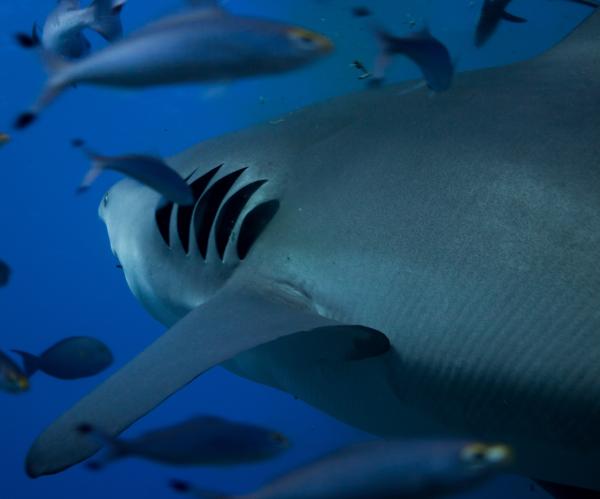
How many years do sharks live?
Shark longevity varies widely among different species. Some sharks live only a few decades, while others reach impressive ages exceeding 100 years. A shark's lifespan depends on factors such as its species, environment, and size.
Here are the lifespans of some shark species:
- White shark (Carcharodon carcharias): this species can live between 30 and 70 years, with recent studies suggesting they could reach ages close to 70 years or more.
- Tiger shark (Galeocerdo cuvier): tiger sharks have a life expectancy of around 20 to 50 years.
- Blue shark (Prionace glauca): this species has a life expectancy of around 20 to 30 years.
- Hammerhead shark (Sphyrna spp.): depending on the species, hammerhead sharks can live between 20 and 30 years.
- Basking shark (Cetorhinus maximus): their lifespan can be up to 50 years or more.
- Lemon shark (Negaprion brevirostris): this species can live around 25 to 30 years.
- Whale shark (Rhincodon typus): the largest species of shark can live between 70 and 100 years.
- Greenland shark (Somniosus microcephalus): this species is one of the longest-lived known, with individuals that can live over 500 years. This incredible lifespan has been determined using radiocarbon dating techniques on their ocular lenses.
Fascinated by shark lifespans? Take your knowledge further by exploring the anatomy that makes them such remarkable predators.
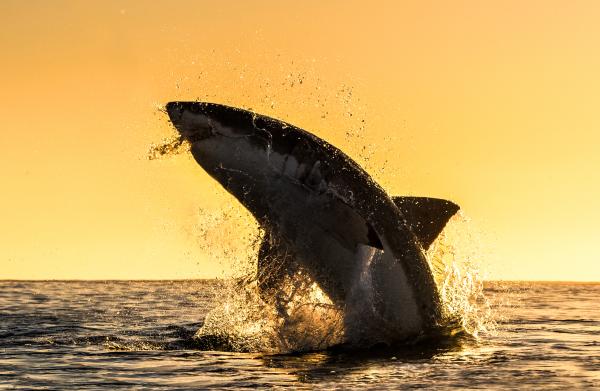
What factors influence a shark's lifespan?
Shark longevity depends on several factors, including:
- Species
- Body size
- Growth rate
- Habitat
- Availability of food
- Predation rates
- Human threats
Longevity varies considerably among different shark species, with some living around 20 years and others exceeding 500 years. In general, larger shark species tend to live longer, as body size is closely related to lifespan, growth rate, and sexual maturity—factors that influence longevity.
Sharks that grow more slowly tend to have longer lives. Fast-growing species tend to mature sexually faster and, consequently, may have shorter lifespans. For example, the Greenland shark grows very slowly and can take several decades to reach sexual maturity, contributing to its long life.
The environment in which a shark lives significantly influences its longevity. Sharks that live in cold waters, such as the Greenland shark, tend to live longer than those in warmer waters. Environmental conditions, such as water temperature and habitat quality, affect the metabolic rate and growth of sharks.
The abundance and quality of food available in a shark's habitat also affect its longevity. A constant and adequate food supply allows for healthy growth and reduces stress, which can prolong the shark's life.
Additionally, predation pressure and interactions with other species can influence shark longevity. Species facing fewer threats from predators are more likely to have longer lifespans.
Want to dive deeper into shark biology? Learn all about their scales in our related article.
If you want to read similar articles to How Long Do Sharks Live?, we recommend you visit our Facts about the animal kingdom category.
- Cortés, E. (2000). Life history patterns and correlations in sharks . Reviews in Fisheries Science, 8(4), 299-344.
- Hamady, LL, Natanson, LJ, Skomal, GB, & Thorrold, SR (2014). Vertebral bomb radiocarbon suggests extreme longevity in white sharks . PloS one, 9(1), e84006.
- Milevsky, M. A. (2020). Swimming with wealthy sharks: longevity, volatility and the value of risk pooling . Journal of Pension Economics & Finance, 19(2), 217-246.
- Nielsen, J., Hedeholm, RB, Heinemeier, J., Bushnell, PG, Christiansen, JS, Olsen, J., ... & Steffensen, JF (2016). Eye lens radiocarbon reveals centuries of longevity in the Greenland shark (Somniosus microcephalus) . Science, 353(6300), 702-704.






